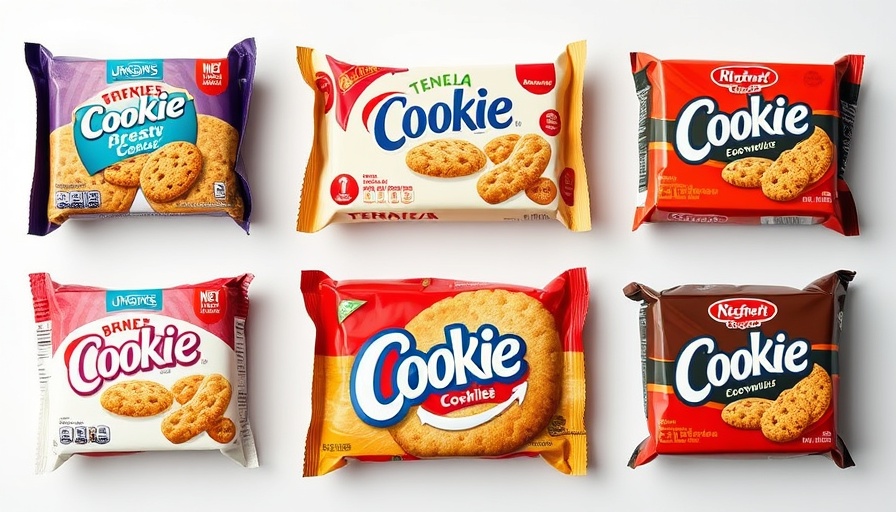
Mondelez vs. Aldi: The Battle Over Snack Packaging
Mondelez International, the stalwart behind beloved snacks like Oreos and Wheat Thins, has recently taken a bold stance against Aldi in a legal showdown that underscores the importance of brand identity and consumer trust. The snack giant filed a lawsuit in a federal court in Illinois, alleging that Aldi's packaging designs for its products closely mimic those of Mondelez, thus misleading shoppers.
The Details of the Lawsuit
According to the lawsuit, Mondelez argues that Aldi's imitation packaging creates a likelihood of confusion among consumers. The complaint particularly points out products like "Wheat Thins" versus "Thin Wheat" and "Nutter Butters" versus "Peanut Butter Crème Filled Cookies," claiming that these names not only sound alike but visually resemble the famous brands. Mondelez asserts that such mimicry not only misleads consumers but also threatens to dilute the distinctive quality of its packaging, potentially causing irreparable harm to its trademarked products.
The Significance of Trademark Protection
This case is about more than just snacks; it highlights a critical area of trademark law concerning consumer perception and brand integrity. Mondelez seeks not only monetary damages but also a court order to prevent Aldi from selling any products that infringe on its trademarks. This move underscores the deep investment that companies make in their brand identities and how essential it is to protect them.
Public Perception and Brand Loyalty
Brands like Mondelez thrive on their reputation and consumer trust, which have taken years to build. According to recent market research, specialty packaging plays a pivotal role in establishing brand loyalty, particularly in the snack food sector where impulse purchases are common. Consumers often rely on packaging to identify their preferred products quickly, making any confusion detrimental to a company's sales and reputation.
Aldi's Counter Perspective: The Appeal to Value
On the other hand, Aldi’s strategy of offering look-alike products at reduced prices often appeals to budget-conscious shoppers. This approach has earned the supermarket chain a loyal customer base, but it raises questions about the lines between value and deception in marketing. While low-cost alternatives have become increasingly popular, they also risk undermining established brands, leading to a wave of litigation as companies seek to defend their market share.
The Future of Snack Branding: A Growing Concern?
As the landscape of retail continues to evolve, so do consumer expectations regarding brand identity. If Mondelez prevails in its lawsuit, it might set a precedent for brands to be more vigilant in protecting their trademarks. This could lead to stricter guidelines around how grocery chains market look-alike products moving forward, potentially reshaping the competitive environment.
Takeaway Insights for Consumers and Investors
This lawsuit serves as a reminder to consumers about the importance of brand authenticity. For investors and stakeholders, it highlights a broader trend in the marketplace where established brands must continuously adapt to retain their competitive edge. As the case unfolds, consumers may become more aware of the implications of look-alike branding on their purchasing habits.
Your Vote in the Consumer Economy
As a consumer, your choices matter significantly. Supporting brands that prioritize quality and authenticity not only rewards those companies but also fosters a healthier marketplace overall. The outcome of this lawsuit could influence your buying decisions in the years to come, especially in an economy increasingly crowded with private labels and discount alternatives.
In conclusion, the Mondelez vs. Aldi lawsuit emphasizes the intricate relationship between brand identity, consumer trust, and the ethical considerations of marketing strategies. Regardless of the case's outcome, it sheds light on the critical dynamics at play in today's retail environment, reminding everyone that packaging isn’t just about aesthetics; it reflects the company's commitment to quality and trust.
 Add Row
Add Row 
 Add
Add 


 Add Row
Add Row 
 Add
Add
Write A Comment